

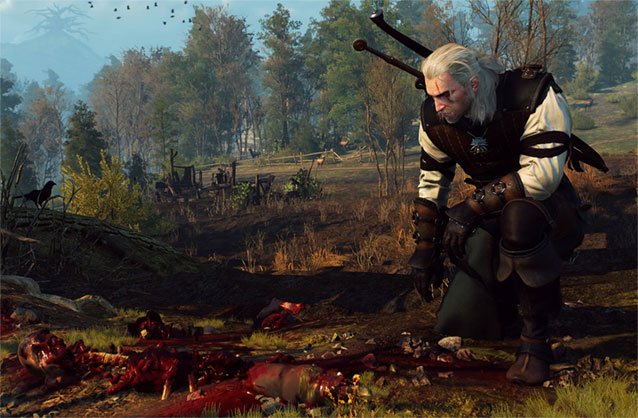
The war on video games is over. Jack Thompson lost the fight against gamers back at the turn of the century in an embarrassing display of hyperbole where he parlayed that killing in games was responsible for real world massacres, ultimately arguing against children and teenagers being exposed to virtual violence.
For some reason, however, a few of the industry’s indie developers are trying to bring the fight back.
Michael Samyn, the co-creator of Sunset, has gone a few steps further than Thompson. In a recent piece on Gamasutra reposted from his original blog, he discusses violent behavior in video games:
"We don’t need theories about the correlation between violent games and violent behavior. Many players of violent and antagonistic games engage in violent and antagonistic behavior. Whether violent people are attracted to games or games arouse violent emotions is irrelevant. Anyone who has ever been attacked by a gamer lynch party knows that a certain number of people who play antagonistic and violent games are aggressive, intolerant, reactionary, misogynist, and so on."
Samyn goes on to blame the video game industry for catering to violent individuals, calling them "horrible specimens of our societies." He paints the gaming industry as one that "actively breeds a group of belligerent hooligans for profit."
It’s nothing new, even if it’s framed the most sensationalist yet. But Thompson was wrong then and his successors are wrong now. As it turns out, despite the now disbarred lawyer’s doomsaying, the feared generation of gamers raised on Doom and Grand Theft Auto has turned out to be the least violent in history.
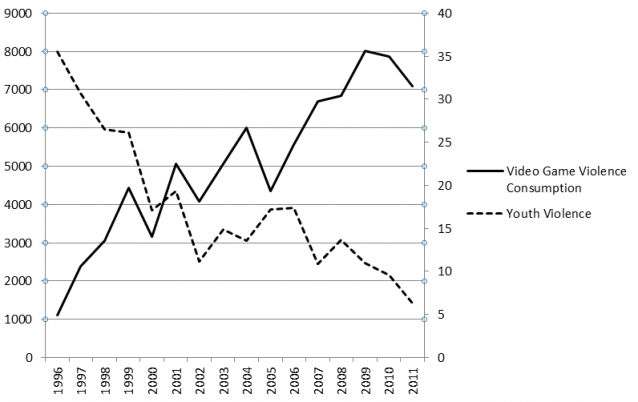
(Source)
Instead, the community surrounding video games has given rise to large-scale community events like PAX and QuakeCon, where thousands of gamers come together in celebration of their hobby—the latter of which specifically celebrates the ultraviolent game from id Software, Quake.
I don't need to keep arguing about why video games don't make people violent, because multi-year long studies have already done that for me and disproved the claim. Sources: 1, 2 ,3, 4, 5.
Samyn isn't the only person in the industry decrying violence in video games as of late. The duo that make up Feminist Frequency, Anita Sarkeesian and Jonathan McIntosh, had very choice words about Doom when it was announced at E3 this past June.

Unable to tell the difference between the deaths of fictitious monsters and real violence, the duo posted a series of tweets about the game's glorification of violence. Won't someone please think of the pixels?
While neither of them went so far as to explicitly blame video game violence for real world violence, their stance was pretty clear: violence in video games is a problem that needs a resolution.
The problem is, there’s simply never been any proof that it actually is a problem. In fact, there’s potential for it to be a cathartic outlet that serves as a guiltless adrenaline rush--not much different from getting thrilled by a slasher flick or going to watch a wrestling match.
The thing about Doom is that its level of violence isn't normal, which is what's so great about it. This is also the reason why it stands out as the title that gave birth to the term ludicrous gibs where over-the-top guts and gore splatter the screen after each death. Call of Duty and Battlefield don't even have gore.
Doom creator John Carmack didn’t particularly care about the condemnation of Doom's violence, stating simply, "I don't have any issue with 'shouldn't be considered normal' -- it is trying to stand out, and is an outlier."
Speaking in a much older interview with Industry Gamers from 2011 (now unavailable), Doom creator John Carmack had some thoughts on why Doom's violence became such a talking point for the media.
"People just play games now and I never took seriously the violence in video games debate," he said. "It was basically talking points for people to get on CNN and espouse their stuff on there. There was an E3 where all that was going on where I was giving interviews and the reporters would start going into their questions, and I wasn't supposed to talk about any of that. My wife was there and she’d start kicking me when I was about to go, 'Well, I think…' And in the end it didn’t matter, it didn’t make any impact on things. I never felt threatened by it and it turned out not to matter."
We are seeing a resurgence of these talking points by new figureheads intending to make a name for themselves by pursuing the topic of violence in video games. Forget what the facts say, "common sense" dictates that "violence begets violence."
It's at this point where we return to Samyn, who concludes his piece with the following words:
"I think game developers, as creative people, probably middle class, probably intellectuals, underestimate how unstable some members of their audience are, how isolated they live, how little access they have to education and broader culture, how little context to place these games in that are so important to their sense of self. We could help these people with entertainment that demonstrates the beauty of life, the value of non-violent interactions, how much better it feels to care than to hurt, how big and diverse the world is, and so on…. I will not accuse them of being directly responsible for mass shootings and online harassment. But they are beyond a doubt guilty of neglecting to prevent such things."
If we are to take Samyn at his word, then he sees himself as an intellectual with a duty to uplift the lower classes from ignorance. It’s fine if Samyn wants to view himself in high regard, but he downright demonizes gamers in the process and puts them as beneath him: he implicitly states that he views them as uneducated, uncultured, and out of touch with reality. He describes violence in video games as problematic and primitive, something we must as a society grow out of and that reeks of immaturity as well as horrifying behavior.
And yet, he’s offered little evidence that violence that’s virtual has any correlation with real world violence. In fact, the world we live in is currently the most peaceful time in mankind’s history--a world in which video gamers have been increasing by the millions each year and games have been getting more realistic.
From the antiwar messages in The Witcher 3 to the cartoonish violence of Splatoon to the ridiculous gore of Doom, violence serves many purposes in video games. It can be educational, it can be emotional, and it can even be just good old fun. What it isn’t, however, is dangerous to society’s quality of life.
This isn’t the 1950’s and we don’t have to buy into the digital age’s version of the Red Scare. If you celebrate virtual violence, you’re not championing real world slaughters. You’re just engaging in entertainment like humans have for thousands of years.



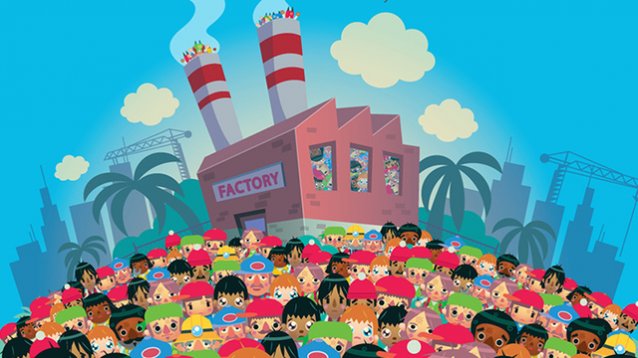
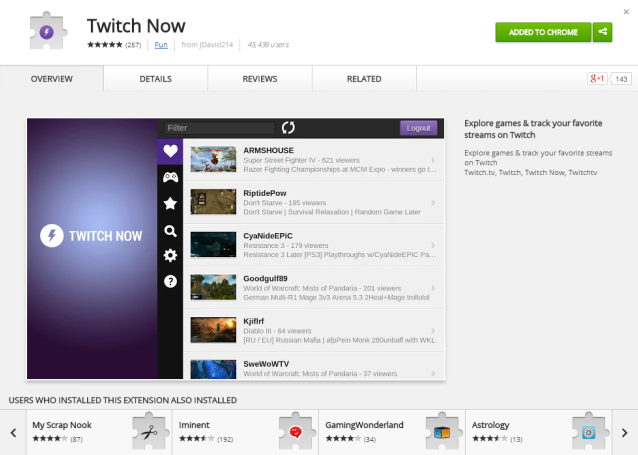 Twitch Now Is The Best Way To Experience Twitch.tv In Google Chrome
Twitch Now Is The Best Way To Experience Twitch.tv In Google Chrome Transformers: Rise of the Dark Spark Complete Video Walkthrough for All Chapters
Transformers: Rise of the Dark Spark Complete Video Walkthrough for All Chapters The Witcher 3 New Screenshots
The Witcher 3 New Screenshots Catch Legendary Pokemon - Omega Ruby and Alpha Sapphire
Catch Legendary Pokemon - Omega Ruby and Alpha Sapphire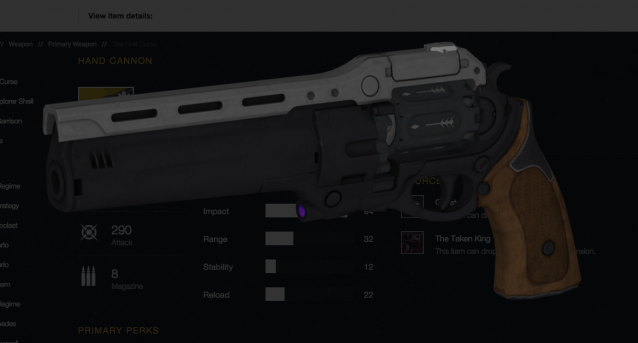 Destiny: The Taken King Guide - How to Get First Curse, Exotic Hand Cannon
Destiny: The Taken King Guide - How to Get First Curse, Exotic Hand Cannon